March 4, 2022
Tunnels
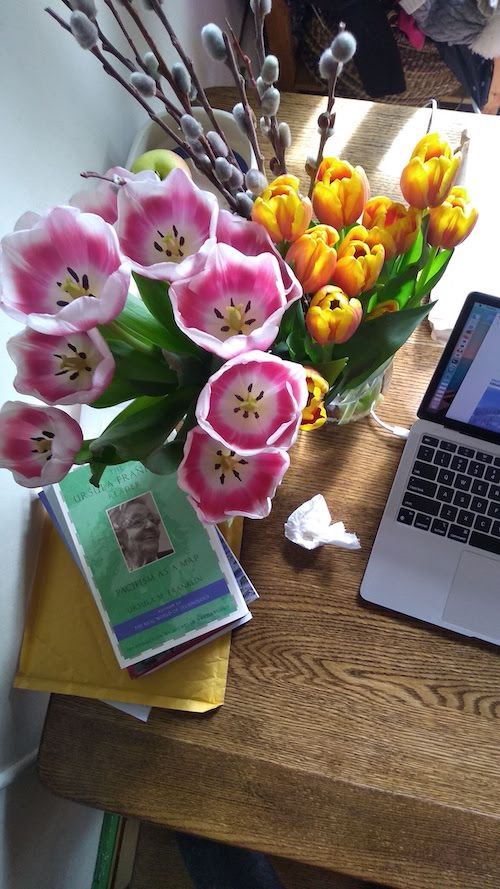
I’ve had a very tough mental health week (what I mean by this is that I’ve spent a significant amount of my time experiencing the physical symptoms of abject terror for someone who is not immediately endangered) but I finally slept okay last night for the first time in a week and it’s helping. It is a lot to be a person who lives in the world right now, even if one is fortunate enough not to be a person in immediate danger, but one thing I am grateful for is that when it all fell apart for me in December, it was because I’d finally had enough to looking for light at the end of the tunnel. That light in the distance for me had been the most sustaining force for me, always, but then I’d become so tired of reaching, or maybe the light seemed so far away I couldn’t see it or else I was afraid I’d just imagined it was ever there, or maybe what I really mean is that reaching such light is as far away as one could possibly get from experiencing life in the present moment, and I was just so tired of missing out on that, of always looking ahead for a moment that might never come.
And so this has been my objective throughout the weeks of this new year, to learn to be here now and meet the moment whatever it’s bringing. To be open and strong and brave in the case of whatever fate may deliver, and when I made such plans, it was mainly Omicron I had in mind, and what’s come to stir my soul instead has been so much more messy, heartbreaking, and terrifying. For me the way so much unrest in Ottawa blended right into the invasion of Ukraine is not entirely disconnected, and in some ways, practically speaking, it really isn’t, though of course I wholly recognize the different of scale. But the point is that I’ve been scared for a month, and really for two years now, and now this, terror on such a potentially annihilating scale.
I’m beginning to wholly understand how everyone in the mid-20th century was on Valium…
But I’ve got away from my main point, which is not to say the light will never come. (It does. It’s all around us. We’re entering our third year of a pandemic, and yet hospital capacity is fine, we’re going out for dinner tonight, my kids have been in school since January, we’re planning to visit our family in the UK in April, green things are beginning to poke through the earth—I could not be more grateful for all of this if my heart were tied up in a sparkly bow.) But just that I am glad that I committed to learning to get along in the meantime, to learn how to be mostly okay even when most things aren’t okay, when all of my ducks aren’t in a row, and that I couldn’t have picked a better year to build up these muscles, and instead of trying to rail against reality, I choose to meet it open-heartedly, which is hard, and it hurts, but it’s also so much less impossible.
February 25, 2022
Signs of Hope
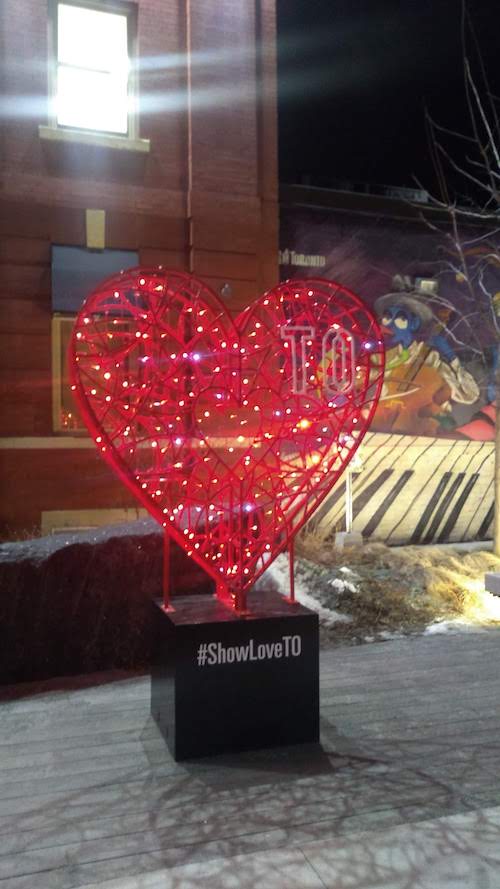
I am devastated by Russia’s invasion of Ukraine, by the toppling of our world order, and while my mental health is reeling, I am buoyed by how people all over the world, leaders and ordinary citizens, particularly within Russia itself, are standing in defiance of violence and tyranny, standing FOR democracy and freedom (which in this case actually means something, for once). We are all we have, and it’s so very precious, and it’s everything. Desperate for signs of hope tonight, I found this one newly installed on Brunswick south of Bloor, and it meant a lot to me. Sending love to wherever you are. And let’s abolish nuclear weapons so nobody else ever has to be this afraid again.
More:
- On Saturday February 26, I’m walking 5km to raise funds for my neighbours at the Fort York Food Bank as part of the Coldest Night of the Year fundraiser—it’s not too late to contribute if you’re able. You can donate here, and thank you!
- Did you know that I’m one of the jurors for the 2022 Kobzar Book Awards, which celebrates excellent books with a tangible connection to Ukrainian-Canadian culture? Learn more about the shortlist. The award will be presented on March 24.
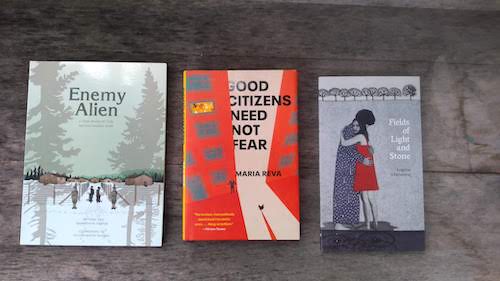
January 26, 2022
Why I Talked to My Kids When I Was Struggling With Mental Health
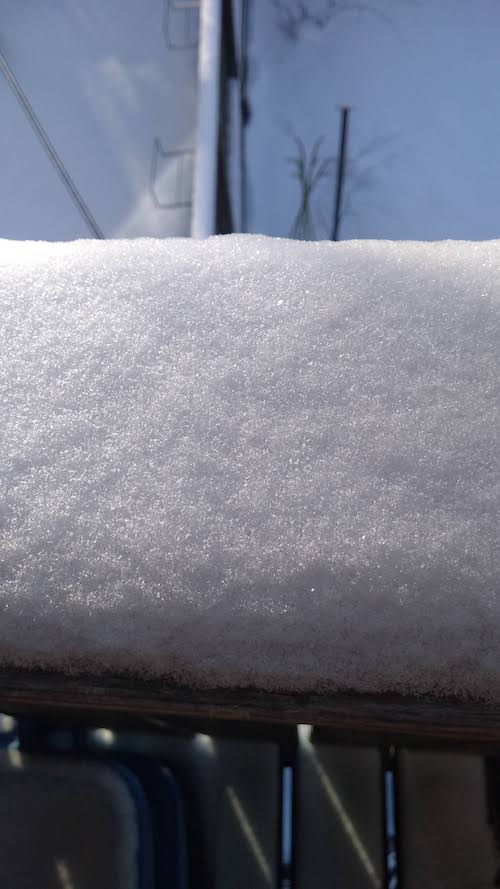
In mid-December, when I hit my omicron wall and my mental health crumbled, it was important to me that my kids knew what was going on.
And not just because there was no hiding it. I’m not stoic at the best of times, but when the stakes are high, there’s no disguising my feelings. And I knew that any effort to keep from them what I was going through was only going to seem strange and mostly likely create far more alarm than merely acknowledging reality ever would.
So I told them. I said, “This isn’t your problem, but you need to know what I’m going through. I’m having a really hard time with my feelings and I need help and support to get better. And fixing me is not your job at all, but I need some understanding from you for that to happen.”
I told them I’d be calling the doctor and finding different ways to manage my stress. I told them, “This is what’s happening, and I’m telling you because you deserve to know and because I know you’re smart enough to get it.”
They were smart enough. And I was grateful too for the example I was setting for them, for de-stigmatizing mental health struggles and talking about these as I’d do with any other health issue. I was showing them what reaching out for support looks like, and I was also hoping that I’d eventually be able to show them that these things do get better. They would see that admitting that you need help can be what strength looks like, and I was also giving them the opportunity to rise to the occasion and be the kind and loving people that they are.
It’s a delicate balance. I am a parent and they are my children, but our relationships are still built on love and mutual respect, and these relationships are reciprocal. And yet at the same time, it’s not their job to take care of me. I don’t ever want them to feel the responsibility of that, or to worry that their own needs were being neglected as I was focusing on my own well-being. (I am fortunate too to have the support of their dad, and my family, and our community so that there is room for me to to focus on both.)
In order for me to be able to properly take care of them though, I had to take care of my own self first, and they understood that.
It helped that my fallibility was not news to them, and I was building on years of imperfection—my mental health crisis was really just more of the same!
I think some of the greatest lessons we teach our children involve showing them what it’s like to be human and to live with humans, for better or for worse.
January 3, 2022
The Old Year Broke Me
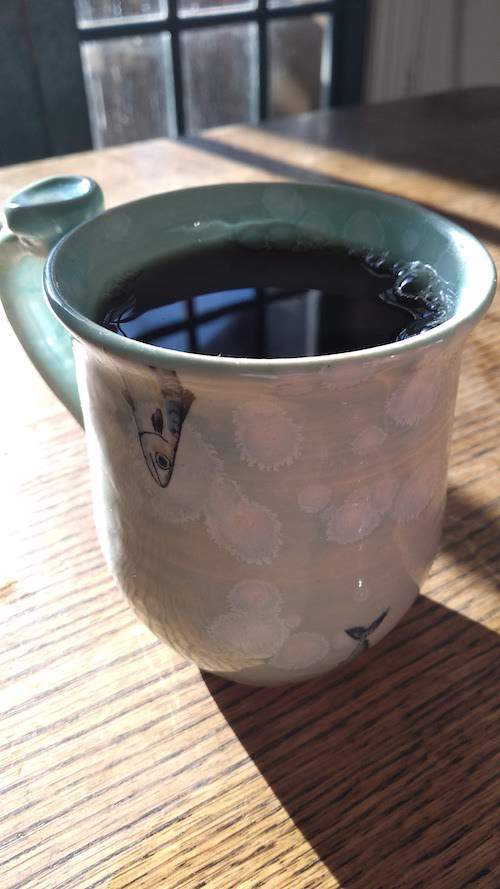
The old year broke me—it did! Which I should have seen coming. Scrolling back in my Instagram feed, I realize that I spent much of November overwhelmed by difficult emotions, mostly stress and sadness. While my own situation was pretty stable, I was feeling everything in the world so deeply, and then the advent of a new pandemic wave absolutely sent me over the edge. And not even the prospect of the wave itself, but everyone else’s perception of it. I saw a news headline at some point mid-December which was, “Holiday Health Advice from 150 Experts,” which pretty much summed it up for me, too many voices in my head. It began to feel like everybody’s Instagram stories were yelling at me, and there was so much doom, which I suppose some people felt was informative, but in my fragile state I interpreted it all as, “We’re all going to die.” It felt like, I told my husband, there was an asteroid heading straight for me. I was having panic attacks, spending nights mostly awake in abject terror that the airplane flying over my house was in fact end times. One day, coming out of the gym, I caught a glimpse of the 24 hour news channel that absolutely destroyed me. My panicked responses were just like I’d been in the first wave of the pandemic, which was SO ANNOYING because I’d already looked back and realized how useless and idiotic my reactions to the crisis had been. AND NOW I WAS DOING IT AGAIN!
Except I didn’t. I called my doctor, after dropping my daughter off at the bus stop and walking up Major Street weeping, the same way I’d wept 12 years previous when that same daughter was born and I was sure I didn’t have Post-Partum Depression and it was just that everything was awful, but only now I understood that it wasn’t that simple. That everything might be awful, but that there’s still no reason to be crying like that, to have to bear the load this way. That maybe the feelings and chemicals rushing through my body have far less of a connection to what’s actually going on in the world, even if those things are hard, than I really understand. No, I surrendered, because I absolutely couldn’t do this. “I just want to be put into a coma for the next three months,” I kept saying, which at the time I thought seemed perfectly reasonable.
I couldn’t have timed it better. (Look at me, optimizing my mental health breakdown, whee!). I put on a pair of trackpants and a sweatshirt, and leaned right into cozytown. The daily toll of worrying about school outbreaks was getting to me, but we made it to the end, and the world seemed to be shutting down a bit just as I kind of needed it to. I finished up my work for the year. I started my holiday reading, and decided that our holiday television indulgence would be Ted Lasso, instead of the bleak murder mystery I’d been gunning for. I got a prescription for Lorazapam, to use as needed, and it helped so much, and then my friend Kate helped connect me with a therapist colleague who even managed to fit me in for a session before her own holidays began, and all of this—as well of the quiet of Christmas, reading When Things Fall Apart, by Pema Chodran, and disconnecting from all those too many voices—helped me so much to feel stable and safer again, though the process of finding balance will be, of course, ongoing.
So that was my December, and it’s all been very intense, and also illuminating, and I am grateful to have so many new tools in my belt as we head into what will no doubt be a winter of pandemic challenges (my pool reopened today and i got to go swimming this morning before it closed again this afternoon due to new provincial restrictions, which include a delay of in-person schooling, all of this probably for the best, but also disconcerting, because there is no careful planning involved, instead it’s like somebody shooting darts with their eyes shut).
In the weeks ahead, I am intent on working on the nature of just being, even in more challenging moments, instead of being overwhelmed by anger and judgment, right and wrong, good or bad. I also want to do better at keeping everyone else’s voices, thoughts, rage and anxieties out of my head. Because Instragram, which was the last social medium that brought me pleasure (though it still does, but omg, stop sharing screenshotted tweets. If I wanted to be on Twitter, I would be on Twitter, and I don’t!) was such a big trigger into my mental health spiral, I’ve also become really wary of of the platform and less excited about creating on it.
And so leaning into #BackToTheBlog is going to be a big part of my 2022 plan, I think. Writing stuff out on Instagram and elsewhere has been a huge part of me processing our experience those last few years, but I’m losing interest in process, or at least in what’s intended as the result of it. Something succinct, and conclusive, a revelation. Except I find myself in a moment where I don’t feel like I know anything at all, which is just fine I think, and I’m happy to sit with that unknowingness—as opposed to the wild speculation that delivered me nothing but anxiety and pain. And here on my blog, I think, is the ideal place to do this.
So, Happy New Year. (And really, I mean it!)
March 30, 2021
Don’t Make Plans

Is there any way that I can possibly convey just how exasperating it is for Doug Ford, 13 months into this pandemic, to be telling me not to make plans?
Doug Ford, whose entire approach to handling the pandemic has been “no plans,” whose approach to school re-openings was LITERALLY “Let’s give this a shot, at least…and pray to god that everyone’s safe.” Doug Ford, who campaigned for the job of premier with a platform of “no plan,” whose Ministry actually thought it was totally okay for teacher-librarians to be finding out on Labour Day that the next day they’d be teaching kindergarten. Whose whole plan for the second wave was to do nothing until the pandemic was once again out of control, and whose plan for averting a third wave was to open up the province again while infectious variants are rising. Whose vaccine roll-out plans have been definitively NOT GREAT?
Who ever could have seen this third wave coming, not to mention the second one?
Um, EVERYONE.
Right now, teacher’s unions are advising the province to move schools to virtual after Easter weekend, and then keep our delayed Spring Break, which I think sounds like a fine plan, but because this is a government that prides itself on not listening to unions or people who know things, perhaps they’re probably not going to take that advice, and this is the kind of instability that’s been a hallmark of this group of ding-dongs since they were elected.
And maybe the Premier doesn’t make plans, but I do. Like everyone, I had plans for 2020, plans that got cancelled one after the other, and I’ve been mainly uncomplaining as I cancelled those plans, because some things can’t be planned for and you can’t control what happens (when you’re not the government), but instead how you react to it. So I’ve stiffened my upper lip, and gone without seeing friends and family, and my children have been brave as they’ve made giant sacrifices in their own lives, and I’ve tried to live up to their example, and so it was with Easter last year, and I cancelled our plans for an outdoor Thanksgiving, and Halloween, and Christmas was my mom coming over in the afternoon with us all wearing masks and the windows open, which was freezing, and I haven’t seen her since then. We had picnics in the park six feet away from friends in the summer, but haven’t socialized with people outside our household since our kids returned to school, and I’m still not complaining, because you’ve got to do what you’ve got to do, and also I continue to be so grateful that we’ve all been healthy.
But today I hit my limit. I am finished with having all my plans cast aside because of this government’s complete lack of a plan, and over and over again. This is not like last spring when nobody knew what was going to happen, or what actions would be necessary to control the spread of the virus, when all of us (including the experts) were still in the dark. For months, medical experts have been advising the government to implement paid sick leave to slow the spread in workplaces. Others have been advising widespread testing and tracing, particularly in schools, and this still hasn’t happened. There are all kinds of plans that could have been put in place to avert this latest wave of Covid, and the government has heeded none of it.
And now the Premier has the nerve to tell me not to make plans for Easter? When Easter is literally FIVE FUCKING DAYS AWAY? With absolutely no respect, Doug Ford (because it’s been a very long year), you’ve got no business advising anybody about plans, or messing with mine, because it’s your absolutely failure to plan that’s resulted in our current disaster.
Doug Ford telling me not to make plans for Easter is so absolutely patronizing, disrespectful, and insulting.
Doug Ford telling me not to make plans is like the pot calling the kettle a failure of leadership. It’s like the doctor who missed the diagnosis complaining about the funeral. It’s like the guy who pisses on your boots, and tells you that it’s raining, and then hands you a ticket for standing in a puddle.
March 18, 2021
The Limits of Hashtags

For the last, well, seven years, to be honest, I have been frustrated by the limits of hashtag activism, not because the issues these hashtags have brought to the surface of public attention are not urgent and critical, but because they *are,* and I am not sure they are served by the simplification of a hashtag, which ultimately stands to coalesce a tangle of experience into a single narrative. The hashtag is a beginning, I think, but one single event or idea can never really stand for more than itself, because the world is so much more messy and complicated than that.
I was thinking about this all last week at news of the murder of a woman in London; I’ve been thinking about it with the news of the murder of 8 women, six of them Asian, in Atlanta. I have been thinking about how I want to resist the demand to share the same PowerPoint stories, employ the same hashtags, to use the same words as everybody else to respond to these incidents, because there is always more than one story and we ought to be suspicious when there isn’t.
How I want to respond with something more meaningful than adhering to that single story, as a tribute to the humanity of these people whose lives have been violently stolen. More meaningful than texting my Chinese-Canadian friends to check in with them as well, which seems kind of cringe worthy and cliched, and a burden for my friends. I don’t want to put a fucking candle on my porch. (Or a hockey stick. Good God, do I ever find public mourning rituals meaningless.)
Instead, I want to think, and share my process, and sometimes that takes time, and in fact it should. Instead, I will admit that I still don’t know what an appropriate response is, but that I’m rattled too, and that white supremacy is real, and that I am committed to anti-racism, which I think requires even more work than me yelling on Instagram in fact.
I learned a lot from reading Morgan Ome’s “Why This Wave of Anti-Asian Racism Feels Different,” an interview with Cathy Park Hong in The Atlantic, and so I think that is what I want to share now, in addition to the obvious show of love and solidarity. It’s linked in my profile and it’s great.
February 5, 2021
Dizzy Righteousness

For a long time, quitting Twitter—for me— seemed about as possible or likely as quitting oxygen, even if the whole experience was so much less rewarding. I didn’t like Twitter (anymore—once upon a time it had been a source of friendship, inspiration and fun, but that all changed around 2014 or thereabouts) but it was necessary, it seemed. It was true there were things I knew from Twitter that were tremendously worthwhile. If not for Twitter, I might have travelled to the UK at year ago this March, but I was put off by disturbing tweet threads by Italian ICU doctors with perspectives that weren’t yet being reported in the newspaper. Twitter was how I found out about everything, from breaking news to pop culture scandals to political developments. It was the platform from which I interfaced with so much of the world…and then it began to occur to me that this was the problem. That while the world was difficult, Twitter only made it worse.
There was a reason that I quit Twitter, finally, but now I can’t even remember what it was, and perhaps this is the point. When I finally logged back onto Twitter a few weeks after my first break—I still have an account but check it every 60 days instead of 60 times a day, which is a big shift for me—Scott Baio was trending for arranging mugs in a department store, and that really just clinched it, because what if I’d never found out that had happened? What else could I have done with those brain cells?
I had spent the last three years on Twitter being furious, mainly about our provincial government and various terrible things they’d done, and while I found solidarity and community with other people who felt the same on the platform, the platform for practical purposes wasn’t useful to me. All my online fury actually gave me a peculiar sympathy for the kind of person who gets radicalized through online groups and decides to drive his truck from Manitoba to Ottawa to smash into the gates at the entrance of the Prime Minister’s residence. Because online rage is a self-perpetuating spiral, and spitting one’s feelings into the online void only underlines how impotent most of us really are, and that only makes you angrier (and the cycle begins again). My furious responses to the Minister of Education’s tweets were not useful to me, nor him or anybody, and it wasn’t like he was even reading them. This performance could not be more similar (or futile) than screaming into the wind. The only entity that profited was the social media platform because it seemed I couldn’t quit it.
Sometime last summer I began to insist that I could no longer view our government as an adversary. Which is not to say that our government was not an adversary, but this arrangement was making me irate and unhappy, and it didn’t make anything better. Further, my children were to be heading back to school in September, and I really decided that having some trust in the system was necessary for me to be a functioning citizen. Like, I’d rather trust and be wrong than end being that guy in a tinfoil hat. And I realized too that my online interactions were so much of the reason why I was angry all the time. That normal people didn’t necessary function this way, and maybe there was something more targeted and effective I could do with my energy than be constantly furious or full of anxiety, waiting for the next calamity to come across the timeline. And that if I just decided not to be furious all the time about the government, flicked it off with a switch, would that make an iota of difference to how the government functioned? It wouldn’t make anything better, but it also wouldn’t be worse.
“I feel like everybody on social media is always yelling at me,” I said the other night to one adult person I spend all of my time with these days. Trying to articulate just what it was that was making me uncomfortable—not just with Twitter, but the Facebook and even Instagram with its weird powerpoint social justice stories. I can’t stand them. “And it’s not that I don’t care about social justice,” I continued, but I am beginning to think of “social justice” as an abstract principle as an ambition that’s also vague and vast. I am still really tired of social justice memes and wish that people would write their own stories, feel their own feelings, share their own ideas instead of parroting somebody else’s.
This is not an “everybody on the left is brainwashed, it’s a cult, cancel culture, blah blah” kind of post. I still stand by guiding principle that one should never do anything for which Jonathan Kay or his mother might leap to their defence. A lot of people who’ve spent less time online than I have imagine themselves bravely rallying for free speech, due process, and against slippery slops, and they don’t know that they’re being manipulated by so many bad-faith actors. I’m not “just asking questions” or wondering if political correctness has gone too far. And I am definitely not saying “Goodbye to All That” to “the church of social justice” (as one viral essay once put it), or talking about “both sides.” I know what side I am on, and it’s the side of anti-racism, alleviating poverty, supporting marginalized people, lifting up the oppressed, supporting workers’ rights and helping make the world a safer, more gentler place for weirdos to be who they are. But I just have recently become dissuaded of the notion that social media is the place to make all this happen. (Blogs, on the other hand…) Considering that there are other ways to be engaged. That perhaps what social media is isn’t even actually engagement.
David Roth’s “The March of the American Kooks” is one of the most interesting, succinct and illuminating pieces I’ve read about the lunacy of American politics at this moment, articulating so much of what I was trying to get at as I rambled on about everybody yelling at me on the internet. And there is no doubt that the far-right fringes have become a clear and present, violent danger. When there are people marching in the streets with literal Nazi flags, and you’re still going on about “antifa,” I think you’ve missed the point, or you’ve been watching the wrong television channels. I am still confused about how after Nazis went marching in Charlottesville in 2017, perfectly reasonable people wanted to remind us that the left has its extremism too. January 6, 2021, my dudes. This is what comes of both-sidesing. The threat and danger is clearly situated along one specific branch of the political spectrum, full stop.
But part of the reason it’s especially threatening and dangerous is that “dizzy righteousness of derangement” which stretches right across the board, that is not just specific to conspiracy theorist kooks. Which makes it difficult to turn vast and vague ambitions into anything tangible beyond clicks. Fed by social media platforms designed to stoke our rage (Elamin Abdelmahmoud writes about this here), we’ve all bought into this idea that righteous online fury is the way to the change the world—but I think we’re being played. This notion has given us nothing substantial or useful to meet the moment—and its clear and present danger—with. It’s also profoundly uninteresting.
From Roth’s essay: “The politics these people profess is not about helping anyone, lord knows, or really about any kind of ideological program at all. It is about an obsessive and even loving taxonomy of and fixation upon enemies and problems, and the way it works is through relentlessness, and through a refusal to ever stop performing weird arias of anger and umbrage.”
The outcomes are different, and perhaps so too are the extremes, but the symptoms are the same, and I’m done with it. When you can see yourself in an article about a bunch of conspiracy Q-uacks, it’s time to close the browser, turn the page.
January 25, 2021
On Teaching Algebra During an Insurrection
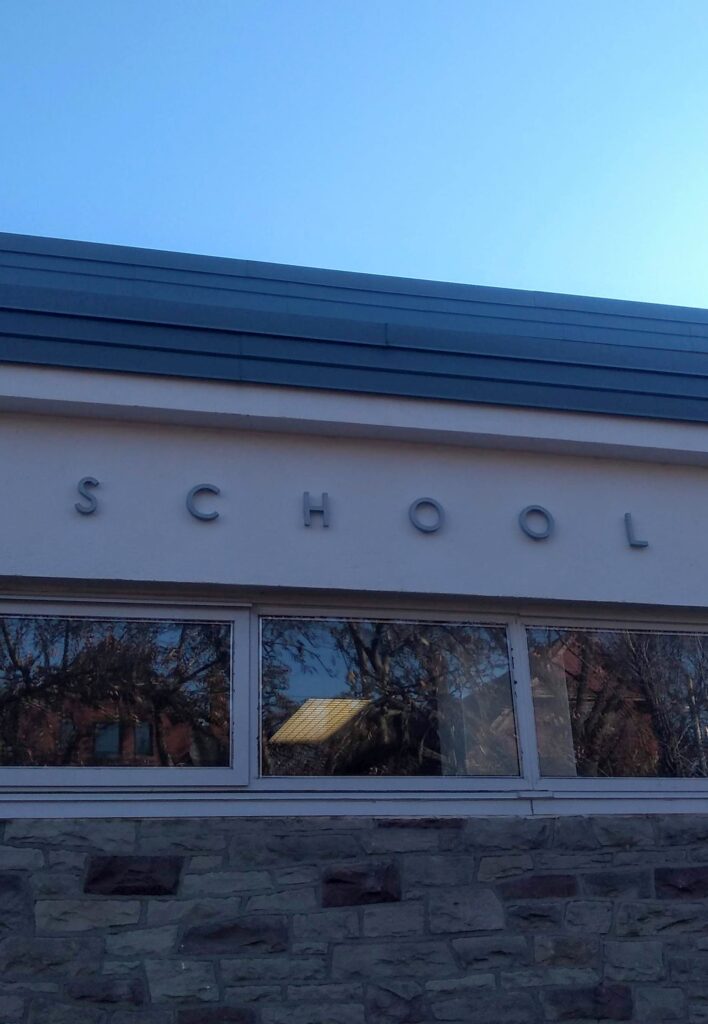
I was sitting in the kitchen when I learned about the riots at the US Capitol on January 6, alerted by an Instagram post around the same time that my daughter in the living room heard about it from this kid in her class who seems to be streaming CNN during virtual school. This kid is always first with breaking news, and that day it was their math class he interrupted to inform his teacher and his classmates that a terrifying mass of marauding thugs were storming the Capitol, and then their class went back to their regularly scheduled programming, which was algebra.
I was a wreck that day, whacked out on stress and anxiety. I took my children for a walk after virtual school was done for the day, and my youngest daughter said, “If this was a dream, it would be a bad one.” I had gotten no work done all afternoon, and I was grateful—as I often am—that I’d never gone to teacher’s college, “just to have something to fall back on” (as they say). Because this means that I will never have to teach a Grade 6 algebra class online during a global pandemic as terrorists mount an insurrection in the nation next door.
The following morning when both my children returned to class, they had their headphones on so that I could hear only their (particularly shouty) ends of the conversation, teachers apparently guiding them through discussions about what had just transpired in Washington. The Grade 2s were talking about voting and fairness and democracy, and over in Grade 6, my daughter was indignant about the latitude granted to those in the Capitol rampage when compared to police crackdowns on Black Lives Matter protesters the previous summer.
As a society, we ask our educators to carry a heavy load. This was the case even before the pandemic, staff at my children’s school forming task-forces to assist families living in poverty (collecting winter coats and boats, canvassing to furnish apartments for families moving out of refugee and domestic violence shelters) and to help students deal with skyrocketing levels of anxiety and other mental health challenges. All this is on top of the usual fare—sports teams, choirs and bands, lunchtime clubs, answering parent emails on the weekends, plus curriculum nights, and holiday concerts, which educators are expected to volunteer their time to.
For two and a half years, Ontario teachers have been serving on the front lines of our government’s reckless cuts, including reductions to minimum wage, cutting supports for the opioid crisis, cuts to social services, autism support, healthcare, housing, mental health problems, domestic violence, poverty—you name it, and never mind the cuts to education. Helping to stop up these gaps in our social fabric has become what teachers do every day in their work, in addition to teaching (which teachers do well).
And then the pandemic happened, school closures pushing working families to their limits—underlining the foundational role that schools and their staff play in the day-to-day functioning of our society, a role that so many parents had always taken for granted. When Ontario schools reopened in September, amidst so much fear and uncertainty, teachers masked up and returned to the classroom, my youngest daughter’s teacher telling me, “There is nowhere else I’d rather be.” And she was assuring me, of course, because this is what our children’s teachers do, taking on our burdens and struggles as parents, and our children’s struggles too, helping to make the load a little lighter. Teaching is about so much more than teaching reading, writing, and arithmetic, and more than ever in 2021, as we all navigate challenges that sometimes seem insurmountable.
The other morning, I got to listen in to a bit of my daughter’s Grade 6 class before she got wise to my eavesdropping and put her headphones on. Her teacher mentioning an article she’d read about people having trouble sleeping. “These are stressful times,” she said, and she surveyed the class to see if anyone else was having trouble, opening up a conversation about mental health, about anxiety. A throwaway conversation, so it seemed, but of course it wasn’t, instead a vital check-in, the kind of thing all good teachers now need to weave into their curriculum in this most unprecedented age, but so seamlessly that it is easy not to notice.
It is so easy to underestimate what educators do, and the outsized role they play in supporting the wellbeing and prosperity of all Canadians. For some, it seems like a reflex to malign the entire profession for their good pay and holidays, as though to value the work of educating and supporting future generations was foolhardy and not instead an investment that pays out for all of us. But the events of the past year have made clear the limitations of this point of view, showing us all how essential educators really are.
This year, teachers have shown up for us, and I hope many of us will return the favour in years to come by showing up for them, electing governments that value and support their role instead of constantly undermining it.
June 3, 2020
Thoughts about Being Okay
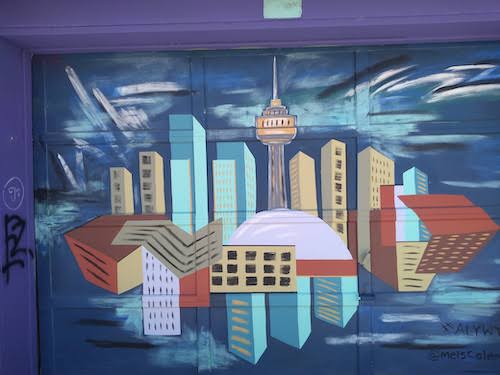
I started having panic attacks again on Monday, the kind I was having back in March when “all this” began. I’d been feeling sad and overwhelmed since Thursday, on Saturday our summer holiday got cancelled, and that afternoon helicopters circled the sky as protesters took to the street to stand up for Black people’s lives and the roar of those machines was dark and ominous. The scenes in the US were getting more and more upsetting, and Monday ended with news of the US “President” assembling troops to attack citizens in the street, and also peaceful protesters being cleared with tear gas so that dipshit could pretend he was going to church. (Dude did not know it was Monday.)
I was trembling, my heart was palpitating. I knew I was going to be in some trouble, and so after my children were in bed, my husband and I sat down to talk and try to calm me down, which helped a bit, but it still wasn’t finished, and the only way out of panic, I’ve found, is through. My mind so highly strung, and I was scared. We have a fan in our room, for ventilation and white noise, and I started imagining I was hearing the sounds of more helicopters. Trying to convince myself otherwise, but I was lying in bed awake for hours, my mind a million miles and hour, and it was the sound of people shouting and screaming I heard next, and what was happening outside? To this world?
I got up to find out, and went to the window, where perspective shifted—and I realized the sounds I was hearing were birds. I’d been up so long that the birds were awake. And the fact that birds were singing was a lulling thought, this ordinary thing instead of the nightmare I’d been imagining. And I fell asleep finally sometime around 4 am.
Spending the next day bleary-eyed and with a headache, the panic still there, and it was hard to function. I barely did. And then the panic was finished, and I still was tired, but I was calm again, and there was light to see, and the birdsong was birdsong, and world a place I recognized. Such relief in that—euphoric, even. Like an illness and the absence of pain—I was so glad to be through it.
But of course it’s not over. I feel okay again, but it’s not okay again, and I don’t think it ever has been. I was thinking too about how it’s important, perhaps even essential, for white people to feel uncomfortable. And how the greatest reason for my fear when I’m overwhelmed is usually connected to my children, my fears for this world into which I’ve brought them. And the lightness of my imaginary helicopters when compared to the concrete fears of other parents for their own Black children, to feel like that all the time. The people for whom the sounds don’t turn out to be birdsong.
I get relief from my fears—I acknowledge the privilege in that, and how different my experience is from those of other parents all over the world, in my city, even. I get to feel better, which is not a bad thing, because my panic was debilitating, short of rendering me unable to function. But the point is that now that it’s done, I need to remember that my feelings are not the end of the story of inequality and injustice, of battles that are still going on and which we need to be fighting regardless of what I’m going through.
But also that I can be okay when things are not okay, and that is okay too.
June 1, 2020
Calm Is Still a Superpower
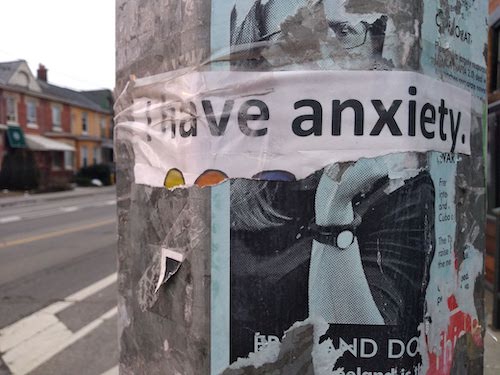
It was my fault—all of it.
Do you do this too? Do you have a whole host of reasons why the disastrous spring of 2020 was a product of your own consciousness? Covid-19 has got me out of both jury duty and a colonoscopy, and it’s crossed my mind that I’ve likely engineered all this, my ability to control the universe gone terrifically awry. (I am sorry.)
But the worst of my crimes was this blog post, the one I published on February 21, when I wrote about how after months and years of freaking out over everything (natural disaster, WW3, and mass slaughter, and every theoretical terrible thing), I finally accepted that nothing TRULY bad was really going to happen and calmed down. And even though unrest and instability, war and tension continued throughout January and February, I met it with my Zen approach, because I’d mastered consciousness, and was basically a yogi.
And then the universe said HA.
Or it didn’t, because the universe isn’t so responsive, and I don’t actually reside at its centre (so I’ve been told), but for a long time, I thought of my February blog post and felt sick to my stomach. When I’d been feeling sick to my stomach anyway, because there was a whole week in March where I couldn’t eat for a week, or sleep, or even sit down and look at a puzzle without having heart palpitations—and that I was looking at a puzzle at all is indicative of how bad things were at. I am not a puzzle person, but I couldn’t even read.
I thought I’d figured out anxiety. What a lark! And that was back when I only had abstract notions to be anxious about, when I could shop for groceries or take my children to school without fear of a deadly contagion. When the President of the USA wasn’t sanctioning police violence in the streets. It seems laughable now.
And yet, the answer is the same. And at least I wasn’t giving a prescription in my February post and I acknowledged there was uncertainty, a wavering—I’d never really claimed to have mastered anything. But I was observing a point in my process instead.
“None of it’s simple,” I wrote, “and the only way toward an answer is work, which is what’s happening now all around us, and we need to be patient. And calm.”
Which doesn’t mean passive. It doesn’t mean waiting and doing nothing, and eliminate the necessity of action, but instead.
It means breathing. It means grounding. It means thinking, and listening, and connecting, and learning, and (in the words of Ann Douglas) calm is still a superpower.
Maybe more than ever.





